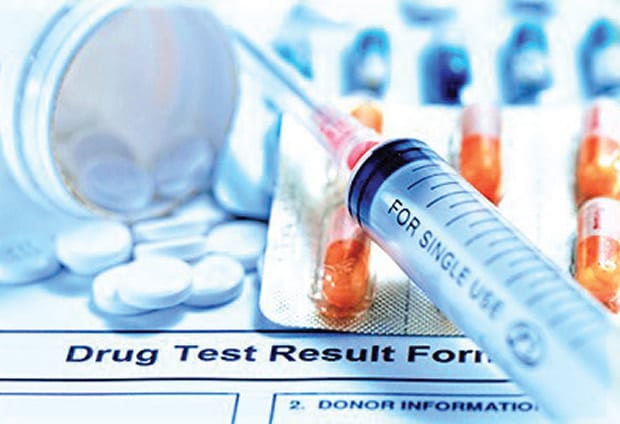Wondering what happens if you fail a drug test while pregnant? Illicit drugs use, including prescription, recreational and over-the-counter drugs, are not uncommon among pregnant women; it is increasing every year. The result of drug use during pregnancy does not only affect the mother but the fetus as well, hence making drug testing for pregnant women important, although with their consent. However, newborns, by law, can be tested for drugs without their mother’s consent.
Many prescription drugs are called that for safety reasons, and some of them are unsuitable during pregnancy, hence the need to inform your doctor before taking any medication during pregnancy. However, since the legalization of marijuana in some states of the United States of America, many pregnant women use cannabis illicitly, without considering the health and social risk they’re exposing their child to.
In this article, you will find out what happens, according to law, to whoever is found to test positive to drug use during or after pregnancy. Therefore, if you know anyone, or you are wondering about what happens if you fail a drug test while pregnant, here’s where you’ll get the answers.
Drug Use Problem Among Pregnant Women
There is a general increase in the use of illicit drugs in the United States, including in women of reproductive age and even pregnant ones. Drugs such as opioids, fentanyl, and other recreational drugs are commonly consumed before, during, and after pregnancy, exposing the child to undue health complications after birth. Prescription drugs are commonly abused for the purpose of being out of it, at least for a while, not regarding its risk to the fetus’ health and development.

Although marijuana is now legal in some U.S. states, the law is clear on its use during pregnancy and for underage children. The responsibility of keeping children off drugs lies with the adults – parents and guardians. However, when these same adults are responsible for introducing drugs to their wards, what does the law do?
Ordinarily, anyone found guilty of substance abuse is sentenced to some years in prison, depending on the state they have committed the offense. However, will a pregnant woman, or a new mother be sent to jail for failing a drug test? Are there programs that help to help these women get off their substance abuse habit? Before we consider these questions, let’s briefly see the effects of substance abuse on the fetus.
Effects of Substance Abuse of Fetus and Newborns
Many drugs taken during pregnancy crosses the placenta and the fetus has a part of that drug, including its side effects. Exposing them to such at that stage of development can be detrimental in many ways, including:
Developmental Issues
The general development of a fetus is impacted by what the mother ingests; therefore, drugs and alcohol use have an effect on the fetus’ development. In adults, the organs are fully developed but fetuses are just developing these organs, and interference with this process leads to an inadequate growth rate of the organs before birth. This leads us to the next effect.
Birth Defects
The abnormal growth of organs in a fetus is what results in birth defects. An unusually formed heart, such as a hole in the heart, tight ventricles, and other birth defects can be caused by illicit drug use during pregnancy.
Ordinarily, every fetus is already at the risk of being born with a defect, using drugs and consuming alcohol during pregnancy increases the chances of that happening.
Intellectual Disability
Intellectual disability is often a result of drug effects on the brain and the central nervous. Nerves and neurons that should be developed in the brain, the seat of intelligence, are underdeveloped due to alcohol and drug use during pregnancy. Consequently, brain underdevelopment causes the child to have an impaired learning ability.
Miscarriage
The above-stated effects happen if the child makes it to the world. in many cases, the fetus is spontaneously aborted when the human body realizes the fetus cannot thrive outside the womb. Miscarriage is nature’s way of terminating the birth of a child that may not be able to survive outside the womb. This is usually a result of some vital organs’ poor development.
Stillbirth
In other cases, where the child is born, they may be stillbirth, as a result of the mother’s poor health and as a result of introducing the fetus to illicit drugs that impact negatively on their nervous system’s development.
What happens if you fail a drug test while pregnant?
The legal consequence of being a pregnant user varies from state to state, depending on their laws. Some states are stricter than others, while some prioritize the child’s welfare over the mother’s. Generally, you can expect to have a consequence attached to your illicit drug use when you are found out. While it is possible for many drug-using mothers to lie during an oral drug test, influencing the result in their favor, there are ways to know if you’ve been using drugs.
One of such ways is the use of urine and blood test. It may be done during antenatal, and healthcare providers will know that your fetus is exposed to drugs. Ordinarily, you will be warned and advised to desist, and placed on a watch list.
Prenatal drug testing of mothers, however, is to be done with their consent, causing a problem, as some may decline such tests. However, social workers will monitor the child for any sign of withdrawal symptoms.
Some consequences of failing a drug test while pregnant include:
Jail Time
In some of the strict states of the U.S, such as Tennessee, a pregnant woman who fails a drug test for opioids is liable to be prosecuted to jail for a maximum time of 15 years if her child shows any sign of withdrawal from drugs.
Alabama and South Carolina have also criminalized the use of opioids during pregnancy. Therefore, a similar fate awaits mothers who fail drug tests during pregnancy, and their child tests positive and shows withdrawal symptoms after birth.
Loss of child
You also stand the risk of losing your child to the social services and foster care system if you still test positive for drug abuse, especially prenatal. In Wisconsin, Oklahoma, and Minnesota, child protection laws can kick in, causing you to lose the child to a guardian ad litem after birth.
This law may also apply in North and South Dakota.
Rehabilitation
Although you stand the chance of getting your child back after a successful rehabilitation from drugs and substance abuse, you will lose some valuable growing time in your child’s life while you’re in rehab. However, a relapse may see you lose your child again, and this time, it may be for good, as the state wants stability for your child.
Conclusion
Drug abuse among pregnant women is on the increase, and since testing them prenatal requires that they give their consent, they lie to influence the result. However, since the health of the child is more important, the mother’s consent is not needed to test the child. If a pregnant woman fails a drug test, she runs the risk of losing custody of her child and serving jail time in some states.




